 |
|
||
| Kellscraft
Studio Home Page |
Wallpaper
Images for your Computer |
Nekrassoff Informational Pages |
Web
Text-ures© Free Books on-line |
 |
|
||
| Kellscraft
Studio Home Page |
Wallpaper
Images for your Computer |
Nekrassoff Informational Pages |
Web
Text-ures© Free Books on-line |
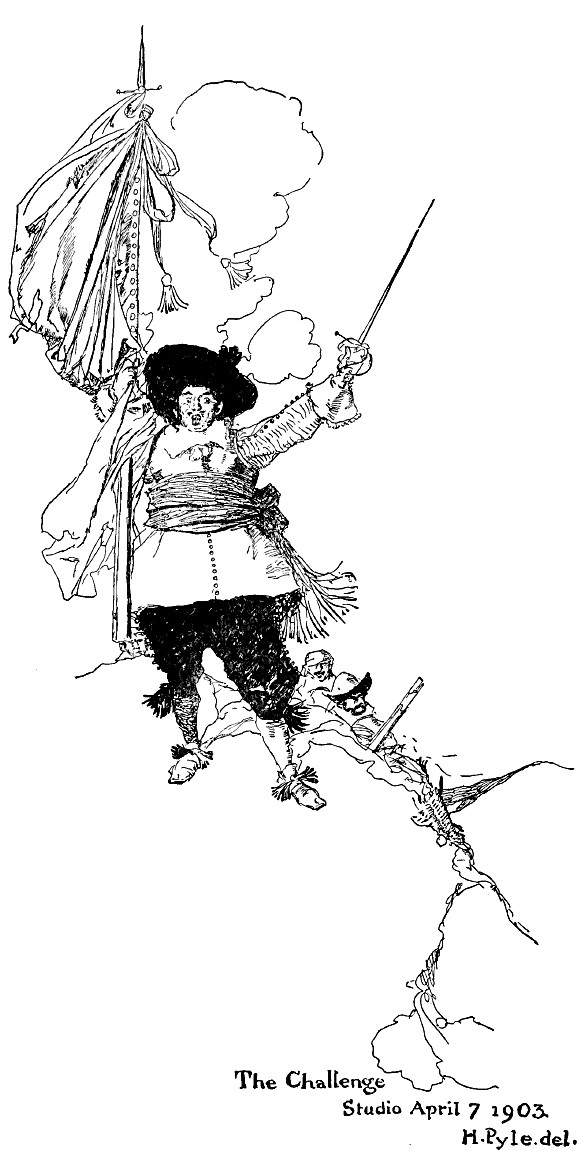 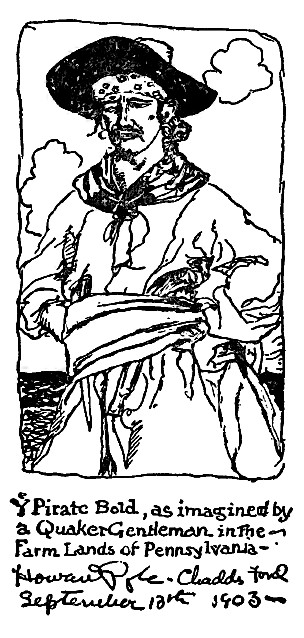 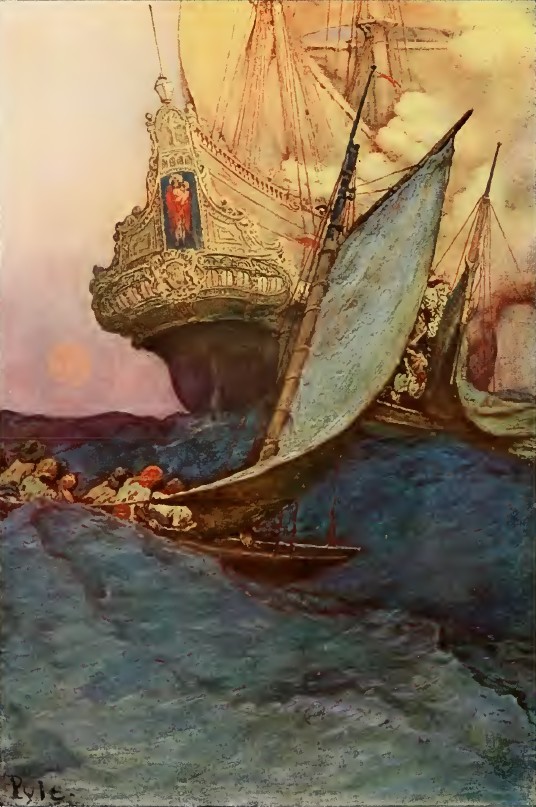 An Attack On a Galleon HOWARD PYLE'S BOOK OF PIRATES Fiction, Fact & Fancy concerning the Buccaneers & Marooners of the Spanish Main: From the writing & Pictures of Howard Pyle: Compiled by Merle Johnson Harper & Brothers, Publishers 1905 CONTENTS FOREWORD BY MERLE JOHNSON PREFACE I. BUCCANEERS AND MAROONERS OF THE SPANISH MAIN II. THE GHOST OF CAPTAIN BRAND III. WITH THE BUCCANEERS IV. TOM CHIST AND THE TREASURE BOX V. JACK BALLISTER'S FORTUNES VI. BLUESKIN THE PIRATE VII. CAPTAIN SCARFIELD VIII. THE RUBY OF KISHMOOR
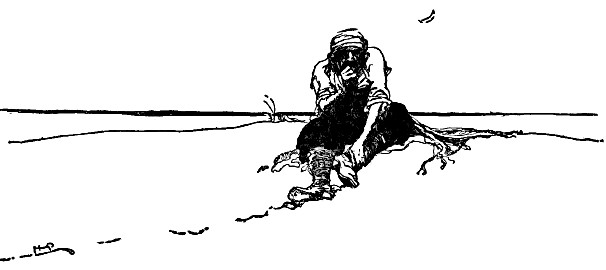
ILLUSTRATIONS
AN ATTACK ON A GALLEON ON THE TORTUGAS CAPTURE OF THE GALLEON HENRY MORGAN RECRUITING FOR THE ATTACK MORGAN AT PORTO BELLO THE SACKING OF PANAMA MAROONED BLACKBEARD BURIES HIS TREASURE WALKING THE PLANK "CAPTAIN MELYOE SHOT CAPTAIN BRAND THROUGH THE HEAD" "SHE WOULD SIT QUITE STILL, PERMITTING BARNABY TO GAZE" BURIED TREASURE KIDD ON THE DECK OF THE "ADVENTURE GALLEY" BURNING THE SHIP WHO SHALL BE CAPTAIN? KIDD AT GARDINER'S ISLAND EXTORTING TRIBUTE FROM THE CITIZENS "PIRATES USED TO DO THAT TO THEIR CAPTAINS NOW AND THEN." "JACK FOLLOWED THE CAPTAIN AND THE YOUNG LADY UP THE CROOKED PATH TO THE HOUSE" "HE LED JACK UP TO A MAN WHO SAT UPON A BARREL" "THE BULLETS WERE HUMMING AND SINGING, CLIPPING ALONG THE TOP OF THE WATER" "THE COMBATANTS CUT AND SLASHED WITH SAVAGE FURY" SO THE TREASURE WAS DIVIDED COLONEL RHETT AND THE PIRATE THE PIRATE'S CHRISTMAS "HE LAY, SILENT AND STILL, WITH HIS FACE HALF BURIED IN THE SAND" "THERE CAP'N GOLDSACK GOES, CREEPING, CREEPING, CREEPING, LOOKING FOR HIS TREASURE DOWN BELOW!" "HE HAD FOUND THE CAPTAIN AGREEABLE AND COMPANIONABLE" THE BUCCANEER WAS A PICTURESQUE FELLOW THEN THE REAL FIGHT BEGAN "HE STRUCK ONCE AND AGAIN AT THE BALD, NARROW FOREHEAD BENEATH HIM" CAPTAIN KEITT HOW THE BUCCANEERS KEPT CHRISTMAS THE BURNING SHIP DEAD MAN TELL NO TALES "I AM THE DAUGHTER OF THAT UNFORTUNATE CAPTAIN KEITT" FOREWORD PIRATES, Buccaneers, Marooners, those cruel but picturesque sea wolves who once infested the Spanish Main, all live in present-day conceptions in great degree as drawn by the pen and pencil of Howard Pyle. Pyle, artist-author, living in the latter half of the nineteenth century and the first decade of the twentieth, had the fine faculty of transposing himself into any chosen period of history and making its people flesh and blood again — not just historical puppets. His characters were sketched with both words and picture; with both words and picture he ranks as a master, with a rich personality which makes his work individual and attractive in either medium. He was one of the founders of present-day American illustration, and his pupils and grand-pupils pervade that field to-day. While he bore no such important part in the world of letters, his stories are modern in treatment, and yet widely read. His range included historical treatises concerning his favorite Pirates (Quaker though he was); fiction, with the same Pirates as principals; Americanized version of Old World fairy tales; boy stories of the Middle Ages, still best sellers to growing lads; stories of the occult, such as In Tenebras and To the Soil of the Earth, which, if newly published, would be hailed as contributions to our latest cult. In all these fields Pyle's work may be equaled, surpassed, save in one. It is improbable that anyone else will ever bring his combination of interest and talent to the depiction of these old-time Pirates, any more than there could be a second Remington to paint the now extinct Indians and gun-fighters of the Great West. Important and interesting to the student of history, the adventure-lover, and the artist, as they are, these Pirate stories and pictures have been scattered through many magazines and books. Here, in this volume, they are gathered together for the first time, perhaps not just as Mr. Pyle would have done, but with a completeness and appreciation of the real value of the material which the author's modesty might not have permitted. MERLE
JOHNSON.  PREFACE WHY is it that a little spice of deviltry lends not an unpleasantly titillating twang to the great mass of respectable flour that goes to make up the pudding of our modern civilization? And pertinent to this question another — Why is it that the pirate has, and always has had, a certain lurid glamour of the heroical enveloping him round about? Is there, deep under the accumulated debris of culture, a hidden groundwork of the old-time savage? Is there even in these well-regulated times an unsubdued nature in the respectable mental household of every one of us that still kicks against the pricks of law and order? To make my meaning more clear, would not every boy, for instance — that is, every boy of any account — rather be a pirate captain than a Member of Parliament? And we ourselves — would we not rather read such a story as that of Captain Avery's capture of the East Indian treasure ship, with its beautiful princess and load of jewels (which gems he sold by the handful, history sayeth, to a Bristol merchant), than, say, one of Bishop Atterbury's sermons, or the goodly Master Robert Boyle's religious romance of "Theodora and Didymus"? It is to be apprehended that to the unregenerate nature of most of us there can be but one answer to such a query. In the pleasurable warmth the heart feels in answer to tales of derring-do Nelson's battles are all mightily interesting, but, even in spite of their romance of splendid courage, I fancy that the majority of us would rather turn back over the leaves of history to read how Drake captured the Spanish treasure ship in the South Sea, and of how he divided such a quantity of booty in the Island of Plate (so named because of the tremendous dividend there declared) that it had to be measured in quart bowls, being too considerable to be counted. Courage and daring, no matter how mad and ungodly, have always a redundancy of vim and life to recommend them to the nether man that lies within us, and no doubt his desperate courage, his battle against the tremendous odds of all the civilized world of law and order, have had much to do in making a popular hero of our friend of the black flag. But it is not altogether courage and daring that endear him to our hearts. There is another and perhaps a greater kinship in that lust for wealth that makes one's fancy revel more pleasantly in the story of the division of treasure in the pirate's island retreat, the hiding of his godless gains somewhere in the sandy stretch of tropic beach, there to remain hidden until the time should come to rake the doubloons up again and to spend them like a lord in polite society, than in the most thrilling tales of his wonderful escapes from commissioned cruisers through tortuous channels between the coral reefs. And what a life of adventure is his, to be sure! A life of constant alertness, constant danger, constant escape! An ocean Ishmaelite, he wanders forever aimlessly, homelessly; now unheard of for months, now careening his boat on some lonely uninhabited shore, now appearing suddenly to swoop down on some merchant vessel with rattle of musketry, shouting, yells, and a hell of unbridled passions let loose to rend and tear. What a Carlislean hero! What a setting of blood and lust and flame and rapine for such a hero! Piracy, such as was practiced in the flower of its days — that is, during the early eighteenth century — was no sudden growth. It was an evolution, from the semi-lawful buccaneering of the sixteenth century, just as buccaneering was upon its part, in a certain sense, an evolution from the unorganized, unauthorized warfare of the Tudor period. For there was a deal of piratical smack in the anti-Spanish ventures of Elizabethan days. Many of the adventurers — of the Sir Francis Drake school, for instance — actually overstepped again and again the bounds of international law, entering into the realms of de facto piracy. Nevertheless, while their doings were not recognized officially by the government, the perpetrators were neither punished nor reprimanded for their excursions against Spanish commerce at home or in the West Indies; rather were they commended, and it was considered not altogether a discreditable thing for men to get rich upon the spoils taken from Spanish galleons in times of nominal peace. Many of the most reputable citizens and merchants of London, when they felt that the queen failed in her duty of pushing the fight against the great Catholic Power, fitted out fleets upon their own account and sent them to levy good Protestant war of a private nature upon the Pope's anointed. Some of the treasures captured in such ventures were immense, stupendous, unbelievable. For an example, one can hardly credit the truth of the "purchase" gained by Drake in the famous capture of the plate ship in the South Sea. One of the old buccaneer writers of a century later says: "The Spaniards affirm to this day that he took at that time twelvescore tons of plate and sixteen bowls of coined money a man (his number being then forty-five men in all), insomuch that they were forced to heave much of it overboard, because his ship could not carry it all." Maybe this was a very greatly exaggerated statement put by the author and his Spanish authorities, nevertheless there was enough truth in it to prove very conclusively to the bold minds of the age that tremendous profits — "purchases" they called them — were to be made from piracy. The Western World is filled with the names of daring mariners of those old days, who came flitting across the great trackless ocean in their little tublike boats of a few hundred tons burden, partly to explore unknown seas, partly — largely, perhaps — in pursuit of Spanish treasure: Frobisher, Davis, Drake, and a score of others. In this left-handed war against Catholic Spain many of the adventurers were, no doubt, stirred and incited by a grim, Calvinistic, puritanical zeal for Protestantism. But equally beyond doubt the gold and silver and plate of the "Scarlet Woman" had much to do with the persistent energy with which these hardy mariners braved the mysterious, unknown terrors of the great unknown ocean that stretched away to the sunset, there in faraway waters to attack the huge, unwieldy, treasure-laden galleons that sailed up and down the Caribbean Sea and through the Bahama Channel. Of all ghastly and terrible things old-time religious war was the most ghastly and terrible. One can hardly credit nowadays the cold, callous cruelty of those times. Generally death was the least penalty that capture entailed. When the Spaniards made prisoners of the English, the Inquisition took them in hand, and what that meant all the world knows. When the English captured a Spanish vessel the prisoners were tortured, either for the sake of revenge or to compel them to disclose where treasure lay hidden. Cruelty begat cruelty, and it would be hard to say whether the Anglo-Saxon or the Latin showed himself to be most proficient in torturing his victim. When Cobham, for instance, captured the Spanish ship in the Bay of Biscay, after all resistance was over and the heat of the battle had cooled, he ordered his crew to bind the captain and all of the crew and every Spaniard aboard — whether in arms or not — to sew them up in the mainsail and to fling them overboard. There were some twenty dead bodies in the sail when a few days later it was washed up on the shore. Of course such acts were not likely to go unavenged, and many an innocent life was sacrificed to pay the debt of Cobham's cruelty. Nothing could be more piratical than all this. Nevertheless, as was said, it was winked at, condoned, if not sanctioned, by the law; and it was not beneath people of family and respectability to take part in it. But by and by Protestantism and Catholicism began to be at somewhat less deadly enmity with each other; religious wars were still far enough from being ended, but the scabbard of the sword was no longer flung away when the blade was drawn. And so followed a time of nominal peace, and a generation arose with whom it was no longer respectable and worthy — one might say a matter of duty — to fight a country with which one's own land was not at war. Nevertheless, the seed had been sown; it had been demonstrated that it was feasible to practice piracy against Spain and not to suffer therefor. Blood had been shed and cruelty practiced, and, once indulged, no lust seems stronger than that of shedding blood and practicing cruelty. Though Spain might be ever so well grounded in peace at home, in the West Indies she was always at war with the whole world — English, French, Dutch. It was almost a matter of life or death with her to keep her hold upon the New World. At home she was bankrupt and, upon the earthquake of the Reformation, her power was already beginning to totter and to crumble to pieces. America was her treasure house, and from it alone could she hope to keep her leaking purse full of gold and silver. So it was that she strove strenuously, desperately, to keep out the world from her American possessions — a bootless task, for the old order upon which her power rested was broken and crumbled forever. But still she strove, fighting against fate, and so it was that in the tropical America it was one continual war between her and all the world. Thus it came that, long after piracy ceased to be allowed at home, it continued in those far-away seas with unabated vigor, recruiting to its service all that lawless malign element which gathers together in every newly opened country where the only law is lawlessness, where might is right and where a living is to be gained with no more trouble than cutting a throat. 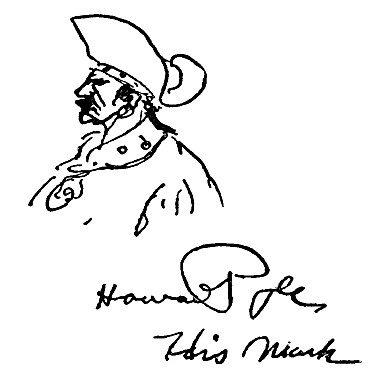 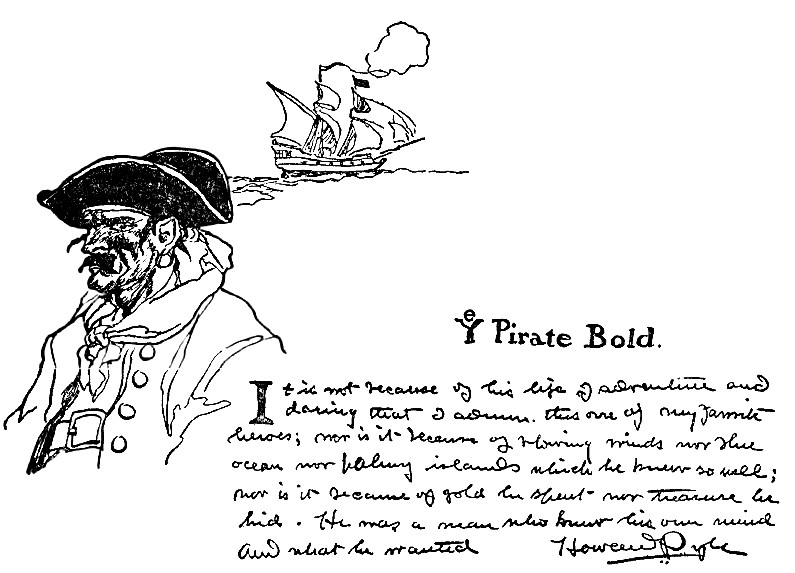 |